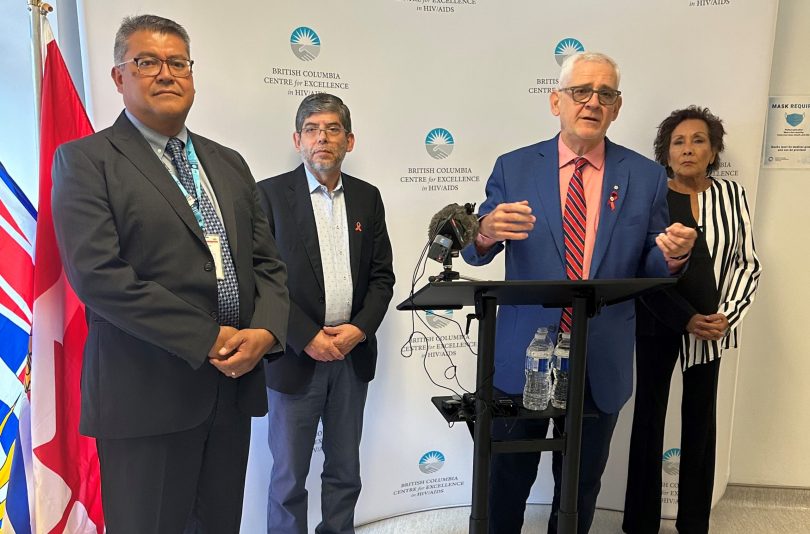The BC Centre for Excellence in HIV/AIDS (BC-CfE) has launched an integrated program in Vancouver’s Downtown East Side for individuals living with chronic pain who are diagnosed with opioid use disorder.
This program, made possible with funding from the Canadian government’s Substance Use and Addictions Program (SUAP), will provide clients with an interdisciplinary team made up of a physiotherapist, occupational therapist, psychiatrist, family physician, peer, and nurse specialist. An interdisciplinary team of infectious-disease and addiction specialists, behavioural therapists, health-system researchers, and data scientists will also be created to monitor the implementation of the program and provide feedback.
“Chronic pain and substance use disorder are related and mutually aggravating conditions that disproportionately impact people experiencing social and structural inequities,” says Dr. Rolando Barrios, Senior Medical Director of the BC-CfE, a research centre under Providence Health Care. “People who experience chronic or complex pain may self-manage pain through substances, notably opioids, while conversely, individuals who experience substance use disorder face a higher risk for injuries or other traumatic events resulting in chronic pain.”
Chronic pain and opioid-use disorder are prevalent in the Downtown Eastside. Estimates from Vancouver Coastal Health suggest that nearly 2,000 clients in the neighborhood currently have a diagnosis of chronic pain, which is likely an under-estimation of the burden of disease in this community.
“The opioid epidemic has been shown to disproportionately impact already vulnerable individuals, particularly those with a substance use disorder and People Living with HIV,” says Dr. Julio Montaner, Executive Director and Physician-in-Chief of the BC-CfE. “With our organization’s existing knowledge base, experience, and network of community care practitioners in Vancouver’s Downtown Eastside, we will be able to develop and implement a new integrated care model which will be essential to reducing barriers to care and treatment for chronic pain and substance use disorder, supporting the reduction of acute care utilization, and improve quality of life for clients.”
Program goals include reducing reliance on toxic street drugs
The goals of the 30-month program, which will be housed at the Hope to Health primary care clinic at 625 Powell Street, will be to increase uptake and retention in opioid agonist therapy, safer supply, and/or risk mitigation treatments; reduce clients’ reliance on toxic street supply; increase clients’ self-reported functionality and quality of life; reduce acute care and hospitalizations among clients with opioid use disorder and chronic pain. There is potential to expand this program across Canada, after demonstrating its impact on clients and assessing health care impacts.
Other program partners include: the Vancouver Coastal Health Authority; the BC Ministry of Health; Vancouver Coastal Health Community Services; Rain City Housing; Overdose Outreach Team (OOT); Complex Pain & Addictions Service (CPAS); led by Dr. Pouya Azar.
The Honourable Dr. Hedy Fry, Member of Parliament for Vancouver Centre, says: “British Columbia, Canada and, indeed, North America are facing a continuing epidemic of deaths related to the use of synthetic opioids and other contaminated substances. There is an immediate need to take a holistic, interdisciplinary approach and address barriers to treatment and care for complex populations who may be at risk for overdose.”
Read the full news release here.





